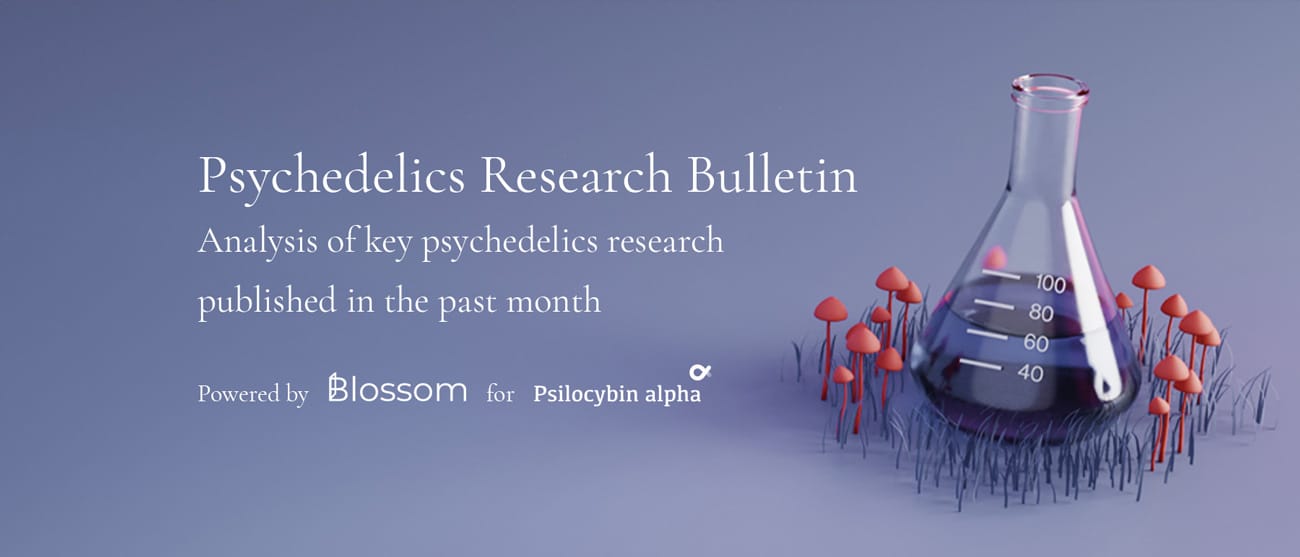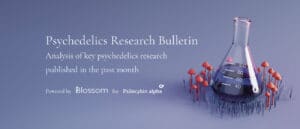Psychedelic research in May took another critical step forward. The publication of a large part of the phase III trial data from MAPS showed MDMA-assisted psychotherapy to be effective in the treatment of PTSD.
Other research showed us the best picture of our brain under the influence of psychedelics, the genetic markers that predict the intensity of a trip, and the relationship between use of psychedelics and psychological stress in the time of COVID.
Psychedelics 1, PTSD 0
The headline study this month was the publication of phase III data from MAPS. The double-blind placebo-controlled study with 90 participants showed that 67% of participants in the MDMA-assisted therapy group no longer qualified for PTSD.
If we can translate this form of therapy from the lab to practice or from the trials to large-scale implementation is the next question on everyone’s mind. A commentary paper dives deep into this question and shows what the differences between both environments are.
Studies usually try and find patients that fit within (only) one mental health disorder. This is done to prevent complications with analyzing the data and with other issues (e.g., alcoholism) flaring up whilst you’re treating something else (e.g., PTSD).
The good thing about the current trial is that it included patients who had comorbidities (multiple disorders). And they improved just as much as the other patients.
Next to the MDMA trial, another trial with ketamine also showed positive results in the treatment of depression, showing the best response for those with childhood physical abuse.
Our collective trauma, Covid and psychedelics
The last year and a half have been different for just about everyone. If you haven’t been affected by Covid, you are sure to know someone who has had it or even lost someone because of it. Can psychedelics help us through these times? That’s the question that two studies published in May sought to answer.
A survey study of more than 5,500 people found that those who used psychedelics (32% of the sample) had increased positive affect and more resilient personality traits (e.g., plasticity) during Covid.
Another survey of nearly 3,000 people found a similar relationship. Those who used psychedelics more had less psychological distress and more social support.
As always, a survey isn’t able to establish causal theories, these are merely correlations. Still, a theory-building paper proposes that psychedelics can lead to healthy behavior changes. They propose that future studies look into the use of psychedelics and improvements in diet, exercise, and other behaviors that lead to more well-being.
Set and settings, psychedelic centers
Places where psychedelics are already leading to positive outcomes are the variety of psychedelic centers out there. Next to the aforementioned clinical trial, data from these centers is just as valuable for researchers.
An observational review investigates the Santo Daimo church (ayahuasca religion) and outlines complex layers of intentions, expectations, visual, auditory, and symbolic environments, social and cultural systems that form a rich tapestry of contextual factors that foster unique experiences.
Another observational study followed participants in the Shipibo healing program and saw that over the course of a year their well-being significantly improved.
A third study dives deeper into a specific protocol used with ayahuasca for the treatment of addiction. The Takiwasi center protocol describes the traditional use of ayahuasca and how outcomes are evaluated.
How do psychedelics work?
How psychedelics work can be asked from many perspectives, and this month was no exception to the many different answers that we can get to this question.
A pre-print reconceptualizes mental health disorders as an emergent property of psychological, biological, and societal symptom networks which reinforce self-sustained patterns of psychopathology. It is hypothesized that psychedelic-assisted psychotherapy can make people more resilient against depression by weakening the network connections between symptoms and disrupting negative feedback of maladaptive patterns.
Another way of putting this is done in a hypothesis paper that proposes that psychedelics (and sleep deprivation) can lead one to fall further on a continuum of increasing flexibility of prior expectations. And so there is less influence of top-down hierarchical (negative) biases/predictions.
If we answer the question at the level of brain organization, then we can look at the best picture we have of our brain on psychedelics (LSD) up to this moment. Here again, we see that psychedelics lead to a flatter hierarchy and thus more distributed processing. A review dives even deeper into the cellular neurobiology of psychedelics.
A pre-print analysis of the data from last month’s big study (psilocybin vs SSRI) shows that brain modularity under psilocybin is decreased. That means that brain connectivity becomes less segregated, so less boxed into different areas. This correlated with the observed antidepressant effects.
Investigating the investigators
By studying psychedelics, we’re learning a lot about the brain, our perception of the world, and what goes wrong (and why, and how to fix it hopefully). But it doesn’t tell us everything, so a group of researchers warns about throwing around terms like consciousness without being very precise. Psychedelics, at this time, don’t tell us anything about the hard problem of consciousness.
The ‘Mystical Type Experience Questionnaire’ (MEQ) is a staple of psychedelic research. A commentary examines the role of mystical frameworks within psychedelic research and identifies the problem of putting subjective experiences into a black box by labeling them as ‘ineffable’ and inaccessible to scientific inquiry.
A final look at research itself comes from a paper that argues that publicly funded research is needed. The author advocates for public funding of independent evaluations of the efficacy of psychedelic drugs, given that current research efforts spurred by private philanthropic interests may propel a widespread use of psychedelics and demands to implement them as a first-line treatment, ahead of the evidence on their safety, efficacy, and long-term effects.
The rest of the psychedelic studies
We now know better how someone will react to psychedelics based on their genes. The CYP2D6 gene (which produces an enzyme that processes psychedelics, amongst other things) or actually the lack of an active version correlates with someone having a longer and more intense trip. This has been found for LSD for the first time. Earlier studies with MDMA have also found similar results.
Tabergnanthalog, a non-hallucinogenic ibogaine-analog, keeps producing positive results. The current study finds it restores neural circuits that were disrupted by unpredictable stress. Of course, these studies are (for now) still in mice.
And finally, philosophers who use psychedelics had more non-realist/subjective views of moral and aesthetic value judgments.
The Research Bulletin is powered by Blossom, a psychedelic research database. Blossom helps you find scientific insights in this blossoming era of psychedelic research. Find the latest papers in the database, search with useful filters, and learn about new topics in high-level reports.





